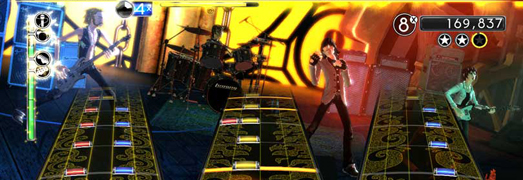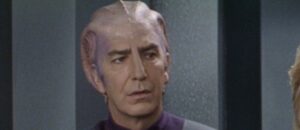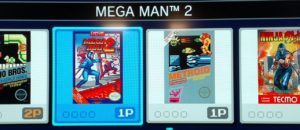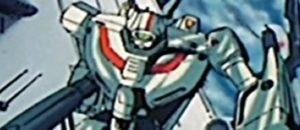Viacom is selling Harmonix thanks to lackluster sales. Could the industry have gone too far with a new idea?
Back in 2005, there was an explosion. Not a literal one, but a figurative explosion made of money from the sale of plastic instruments. ‘Guitar Hero’ had been released and was flying off the shelves. The impressive sales of the franchise spawned a competitor in ‘Rock Band’ and a subsequent war between the two.
It started off reasonably, with one game a year, and then started growing. Plastic guitars made way for plastic drums, microphones and even a keyboard. Bundle pricing skyrocketed, designs got more elaborate, and the licensing of music got incredibly competitive.
Both the makers of ‘Rock Band’ and ‘Guitar Hero’ wanted to have the most stuff and the best product. In 2009 alone, a total of six different ‘Guitar Hero’ games were released. That’s just the ‘Guitar Hero’ franchise and doesn’t include ‘Rock Band’, knockoff games, ‘DJ Hero’ or any of the other music games released in the year.
Of course, the games weren’t the only thing being released. Downloadable content (DLC) came down the line too, which offered gamers the chance to buy new songs without having to buy new games.
That’s part of the problem. DLC is meant to lengthen the life of a game. Take a look at ‘Fallout 3’ or ‘Borderlands’, for example. The DLC exists to make money, but also to keep people from trading the game in. It lets you keep playing the game long after you’ve run through what’s already on the disc.
It works beautifully for these games because we know we won’t see another one for a few years at least. It’s there to tide people over until the next release. But with music games, the DLC acts as a substitute.
After all, why buy a new game full of songs that you may or may not like when you can simply buy the songs you want to play? This, plus the eventual ceiling on people who want to play rhythm games results in fewer and fewer new games being sold.
This year, ‘Rock Band’ went absolutely nuts with the Pro Mode, which includes support for incredibly realistic peripherals that cost as much as the real instruments. The price of a full ‘Rock Band’ setup for Pro Mode goes into the hundreds – That’s hundreds of dollars for a single game.
Pro Mode was seen as a way to keep people buying the game. It’s a new feature, and there’s a new instrument, which means you’ll need the new game. “When the NPD numbers get announced,” muses industry analyst Bill Harris, “Rock Band 3 will have been terrible versus expectations.”
To make it worse, the new ‘Rock Band’ DLC isn’t compatible with the old games. That segments the market for those tracks severely and ensures that only those who own ‘Rock Band 3’ can buy the content. “Unless a shitload of people buy Rock Band 3, making DLC is going to lose money,” says Harris.
So now, after going completely over the top with these games, the plastic instrument industry seems to be on the inevitable downturn.
The big question now – Who will buy Harmonix? It’s a great developer, but it exclusively makes games in a failing genre. My money’s on Activision.
You can find more information on the sale in an article by ‘Wired’ magazine’s Chris Kohler and on the Dubious Quality blog, posted by Bill Harris.






Zaserov
“The impressive sales of the franchise spawned a competitor in ‘Rock Band’ and a subsequent war between the two.”
It’s actually more interesting than that. The original Guitar Heros (1-3, the guitar only ones) were made in a joint effort by Harmonix and RedOctane – who were then bought off by different bigger companies for the purpose of continuing the series.
RedOctane went to Activision, so if your guess is right (“My money’s on Activision”) then the original creators will be back together again. All of that may have been edited out for word count, but I think it’s an interesting story.
As for the fate of plastic instruments, it does seem like too small a market for very similar, directly competing games, especially at the rate the two companies were churning them out.
besch64
If Activision ends up buying Harmonix, I will be overjoyed. Guitar Hero has always been the superior game, but the guys at HMX always made me envious with their kick-ass DLC.
If they got the original party back together, it would be pure magic.
Chaz Dumbaugh
Guitar Hero hasnt been superior since number 3, not sure what planet you are on, but Rock Band took this genre to the next level and Guitar Hero could never catch back up, Guitar Hero World Tour was terrible (as were the drums) and after that it was just a bunch of churned out titles with piss poor production values just to get bands and songs out there to make some cash, Rock Band even had those beat with the Beatles and even Green Day versions of their games, play one of those and compare it to Guitar Hero Van Halen and tell me which one was better….
This year again Rock Band has stepped up the game WAY beyond anything Guitar Hero has done, and even though the sales wont be good for either I’m sure Rock Band’s sales will be better than Guitar Hero, they innovated so much more, added a new instrument, a pro mode that can actually teach you how to play the real thing now, but it still might be too late as this genre is on its last legs anyways
Dick Ward
Honestly, I think Pro Mode was a huge mistake. Same with the Green Day game. There’s no way they’re making enough money on that stuff.
Adam Tyner
…but Harmonix is only on the hook for charting pro mode in the individual songs. Mad Catz does all the heavy lifting for the peripherals.
The Green Day game isn’t a terrible idea but should’ve been priced $20 or $30 lower than it was.
Personally, I think pro mode is a pretty brilliant concept and the biggest game-changer (pun intended?) since the first Rock Band launched. I do think launching without the Squier was a pretty terrible misfire, though. I wonder if sales would’ve been higher if the guitar had been available…not necessarily that legions of people would’ve bought the game and a $300 guitar, but that the existence of a truly playable guitar would’ve excited people into buying right away. As it is, I’m sure a lot of people decided to wait, and by the time the guitar comes out months down the road, they might not care anymore.
I’m having a blast with pro mode on keys.
Dick Ward
AuthorIt’s more than just the charting though, the brunt of their PR focus seemed to be on the pro mode, which I believe alienated a lot of people.
Even if it was just the charting, they’ve segmented the market, which I think is the biggest problem in gaming. Nintendo and Xbox are incredibly guilty of it with peripherals and hard drives respectively.Sony did it big time with the PSP Go too. If you’ve got an established customer base and then you make it so a good chunk of those customers can’t buy your stuff, you won’t make as much money.
On a side note, even though I play the keys (or used to), I have no interest in doing so in Rock Band 3. I just feel like it’s the least fun instrument :p
Adam Tyner
I guess I’m wondering that if they didn’t add in a pro mode, what would Rock Band 3 be? A marginally updated interface and some new songs? With just about every other genre of game, there’s so much that can change between one installment and the next, but what else can you do with a fake guitar other than the same thing we’ve seen for years? Bridging the gap between plastic peripherals and actual instruments — that it’s both a game and potentially an educational tool? — is extremely exciting, at least to me.
While it’s true that Rock Band 3 segmented the DLC market (aside from the Rock Band Network, which is very healthily supported but low on big marquee names)…I mean, I guess I’m looking at it differently than you are. If someone’s content with the plastic instruments he/she already has, there’s no need to buy anything else in order to dive into Rock Band 3. No one’s forced to buy new instruments or face being locked out of the game entirely.
Maybe the argument is that there shouldn’t be a Rock Band 3 — that the series should’ve stopped at part 2 and continued on with DLC only — and I can certainly think of worse things than that. Part 2 still had my attention whenever quality DLC came out. I’m really loving Rock Band 3, though, and even if this does wind up being the last of these games, at least it’s going out on a strong note.
I don’t want to come across as an apologist, and I absolutely believe there were a lot of mistakes made on Harmonix’s part. I can’t imagine there’s any technical reason why Rock Band 3 DLC couldn’t be compatible with RB2…they tried to do the whole forced obsolesence thing rather than sticking to the platform approach they’ve always bragged about, and I don’t think that’s a winning idea. There are an unacceptable number of glaring bugs, especially on the PS3. Who was doing QA for this anyway? The Squier should’ve been available on day one, and the plastic Mustang with its 100+ buttons seems like a misfire on every level. I’m still tempted to blame Guitar Hero for being the most responsible for the decline of rhythm gaming from oversaturation.
Dick Ward
AuthorYou hit it on the head. There absolutely should not have been a Rock Band 3. There’s no need for it. It’s just like the Tony Hawk games – marginal improvement and little innovation.
(Say, there’s an interesting connection. Neversoft made way too many Tony Hawk games and then way too many Guitar Hero games.)
I’m a big believer in DLC and there’s no doubt in my mind that had Harmonix taken the time and money they put into developing a new game and just worked their asses off on getting more full albums as DLC I think it would have been a lot better for them.
I understand what you mean about Pro Mode, and I get why it’s exciting, but the premise is flawed. Even if you’re playing a real guitar, you’re not learning to play the guitar. You won’t be able to go look up chords or tablature – it doesn’t translate. It’s the same with the keyboard. You don’t learn how to read music at all. Even if you made it through expert mode on keyboard you wouldn’t be able to read a very simple piece of sheet music. You’ll have some finger dexterity sure, but no actual music knowledge. Rock Band teaches you how to play Rock Band and that’s about it.
Incidentally, I hope I don’t come off as a guy who hates music games – I don’t. I never got into ‘Guitar Hero,’ but I played far too much of ‘Rock Band’ and ‘Rock Band 2’ for my own good. The drums are what did it for me, they’re such a blast to play 🙂
besch64
Do you work for Harmonix’s PR department?
I prefer circle notes to the square notes. I prefer five drum pads to four drum pads. I prefer GH’s star power activation method for drums and vocals over RB’s. I like having open notes on the bass, so now bass isn’t just guitar that’s eternally stuck on medium difficulty.
So bite me.
AlexWS
That’s all fine and dandy. But when you claimed that Guitar Hero was “superior”, one would assume you based that on an objective observation, not just on preference.
besch64
If you can name a way in which Rock Band is objectively superior, I’d be interested in hearing it.
Dick Ward
Arguing for objectivity when comparing games is silly. :p
AlexWS
Track charting. Two words was all I needed. But I have more: DLC, multiplayer (better modes, and the song doesn’t end when one drops out), a real career mode.
Patrick A Crone
Activision should take a majority of the blame for the decline of the Music Game genre. Releasing several games a year under the umbrella of one title saturated the market. In one year we saw GH Metallica, GH Van Halen, GH Smash Hits, Band Hero and GH 5. Not only that but releasing a whole new set of instruments every year didn’t help. People don’t buy a new controller everytime a new Call of Duty comes out. Why would they do the same with Guitar Hero or Rock Band? Harmonix was smart to limit the release of new titles. Unfortunately, Guitar Hero left people feeling a little overwhelmed and turned off by the genre as a whole.
William Henley
Looks like I am getting in late on this conversation.
I must disagree with you on DLC versus new games. The reason is that a single song runs about $3, yet I can pick up a game used with about 40 songs in it for $20. That’s value for me – 50 cents a song versus $3 a song.
I can honestly say the only DLC I ever got for the Guitar Hero games was free stuff. No, I take that back – I bought the Metallica album. But that was $7 I think, and the quality was BETTER than on the actual Metallica CD.
In fact, other than that, the only DLC I ever bought was for was Beautiful Katamari. Once again, we are back to the idea that I can, for $30, buy a game with 20-30 levels, or I can pay $5 a level in DLC. DLC is just not an added value for me.
Adam Tyner
“That’s value for me – 50 cents a song versus $3 a song.”
…but how many of those songs on the disc would you have chosen to buy if it were up to you?
Rock Band DLC is generally $1.99 a pop (more for RB3 content if you want the pro guitar/bass charts). Buying Rock Band 3 brand new and getting 83 songs, that’s about $0.72 per song. Still, if it comes down to a choice between paying around $2 for 3 songs I don’t like or $2 for one song I *do* like…well, just because one option is cheaper doesn’t mean it has any actual value to me.
Also, a lot of DLC wouldn’t make sense on disc. I’d think most people who pick up a physical copy of a game like this wants variety, not multiple songs by the same artist. An entire Pixies album or pretty much an entire Boston album would be a terrible idea for a general Rock Band game, but I love having the option to get additional content like that. For bands that have had plenty of hit singles, instead of being limited to whichever single song the publisher opted to include on a game, I could have all 3…or 6 or however many. DLC gives me more of a reason to keep coming back as well, without having to wait 6 months/a year/2 years/whatever for the next physical release. Most games I just play through, put back on the shelf, and forget about, but the constant influx of content here keeps me more connected to it.
The concept of the Rock Band Network is really intriguing too since it opens the game up to bands who otherwise likely wouldn’t get the attention. Who ever thought I’d be able to play Jonathan Coulton or Visqueen in Rock Band?